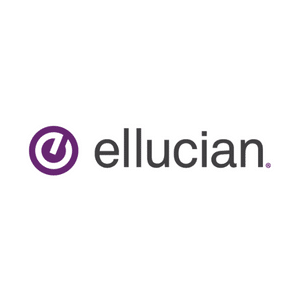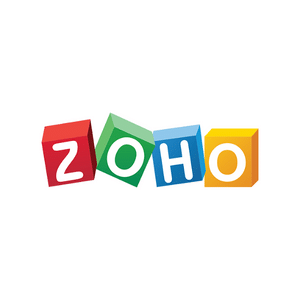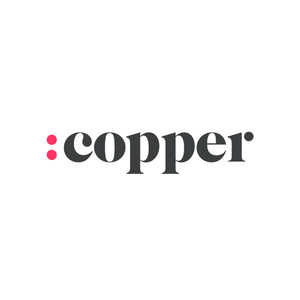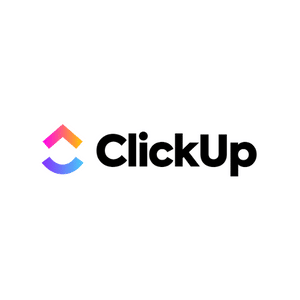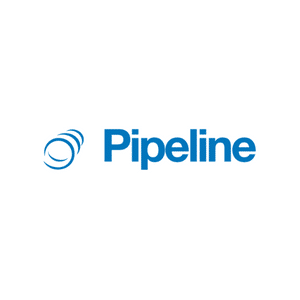Choosing the right higher education CRM is critical to student enrollment and keeping your college abreast of the ever-changing trends in culture and academia.
During my years consulting for a top-rated college in the United States, I’ve realized that digital and technology-related trends like CRM are constantly becoming more critical to the enrollment process.
I know this because I tested and researched a huge host of CRM (customer relationship management) software to increase enrollment.
With this background, my expert team here at TYB, and tons of updated research, this comprehensive list of the top higher education CRM for 2023 has become possible.
What Are the Best CRMs for Higher Education Institutions?
The TYB Team is constantly researching, re-testing, and reviewing relevant CRM software to make sure our analyses are accurate.
As such, this list is freshly updated for the new year.
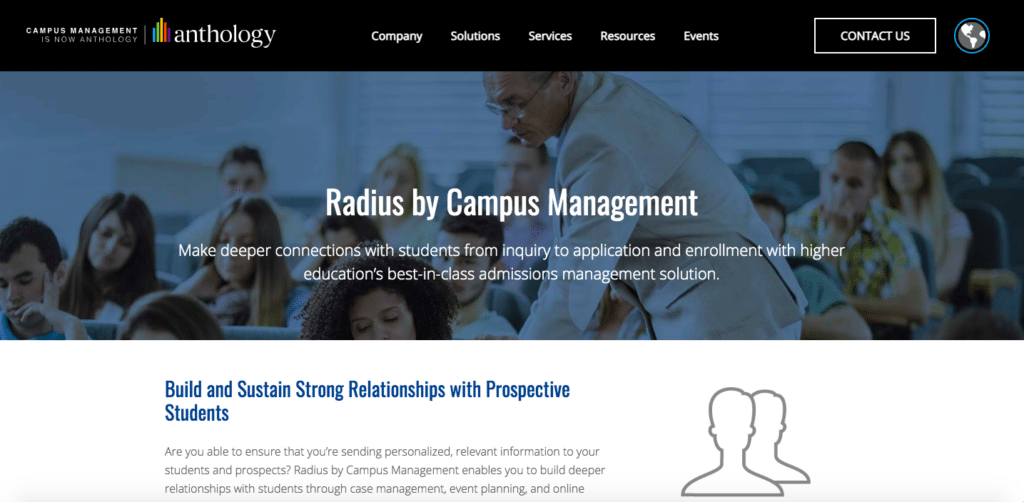
Radius by Campus Management is a reliable enrollment and retention CRM to make sure you’re building notable relationships with your prospective and current students.
Their software also streamlines and optimizes the admissions process for your staff by helping to organize and hold all student information in one place.
This user-friendly CRM system is an excellent option for smoothing out the admissions process.
Why We Picked It
- Email marketing, text, and chat communication options
- Oversee entire admissions process, including deadlines to final review
- Necessary analytics and reports
- Cloud-based with minimal IT involvement
- Enterprise options with AI and machine learning
- Institution guidance
Pricing
The price for this academic CRM varies. You can figure out the best solution for you through a consultation.
Pros
- Helpful widgets
- Easy-to-learn system
- User-friendly organization
Cons
- System occasionally runs slower than average
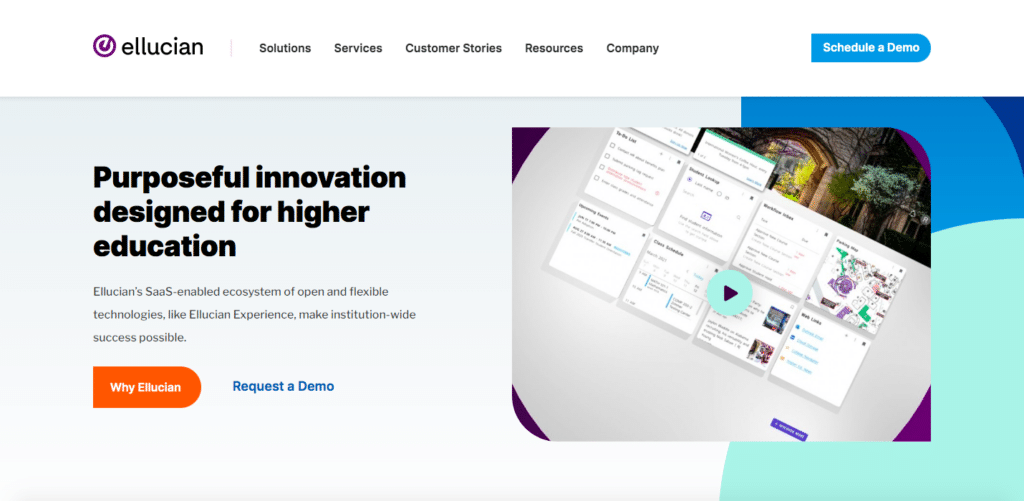
Ellucian offers three specialized CRM systems: Advance, Recruit, and Advise.
Depending on your goals for your higher-ed institution, Ellucian is sure to offer a CRM that fits your needs.
With their services, you can choose to focus on fortifying your school’s donor base, easily track and consolidate student performance, or boost your student recruitment.
Their “Advise” CRM system is for both students and faculty to use.
Why We Picked It
- Customized solutions
- Variety of CRM options to improve your college’s standing
- Advise CRM tracks entire student lifecycle
- Provide student and donor support
- All-in-one dashboard on each CRM software
- Automated tools
- Connect with best-fit student applicants
Pricing
Like many other higher education CRM systems, Ellucian is demo-based and will help you decide your price solution from there.
Pros
- Demos on all CRM software
- Variety of CRM services specified to your school's needs
- Donor-based CRM
Cons
- No all-in-one CRM solution
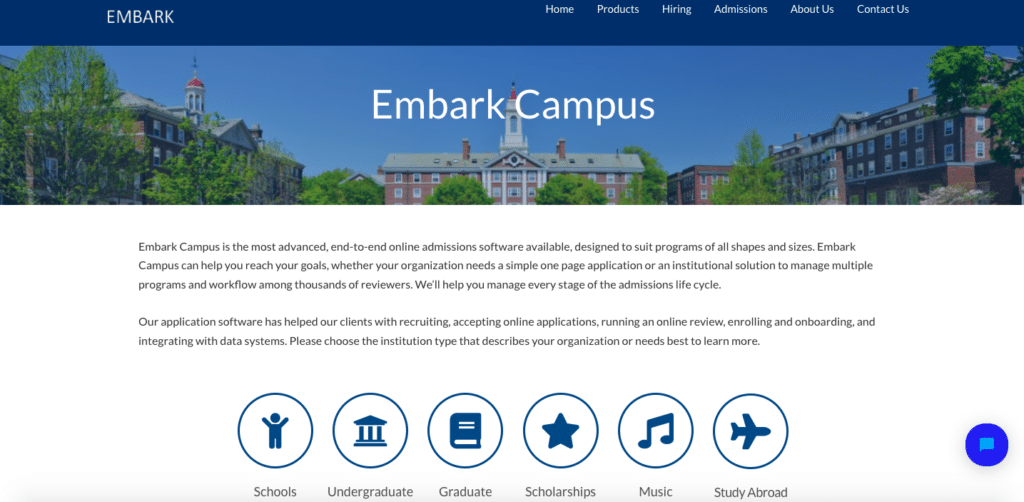
Embark CRM is one of the most efficient choices for colleges looking to improve their admissions metrics.
Not only does it help schools accumulate and classify student applications based on program or degree, but its smart recruitment tools make marketing and outreach initiatives a breeze.
This CRM for higher education is fully collaborative, so your entire admissions team can use it to streamline their tasks.
This service also serves graduate programs!
Why We Picked It
- Multi-functional CRM
- Inquiry forms
- Scheduled emails for applicants
- Sleek mobile app
- Customized application site with your school’s branding
- Global best practices for security and privacy
- In-app video chat functions for meeting applicants
- 24/7 technical support
Pricing
You can contact Embark directly to discuss pricing options according to your school’s size and program.
Pros
- Huge host of key features
- Emphasis on potential student engagement
- White-label options
- High-level security
Cons
- No Android app
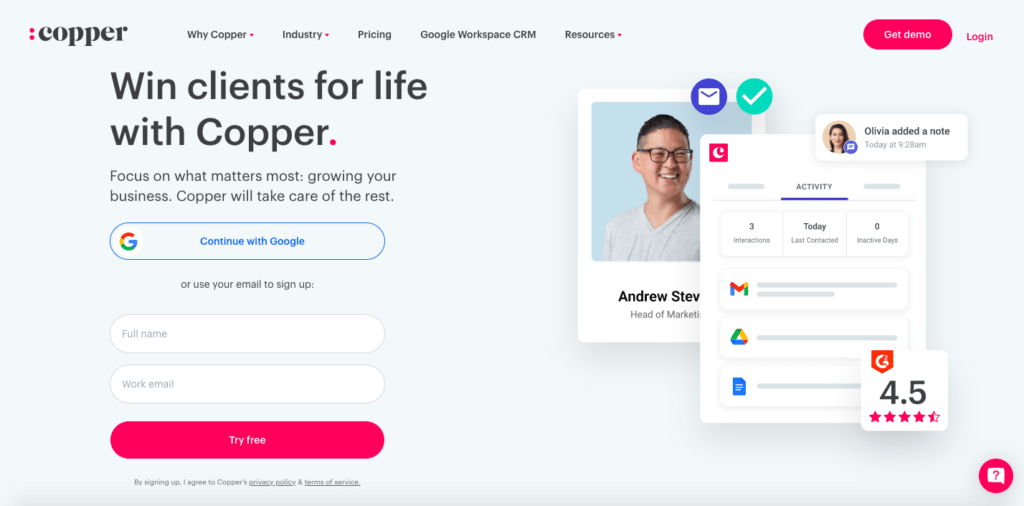
Copper CRM is famous for its Google Workspace integration which allows for increased simplicity and automation.
If you rely on Google Suite tools like Gmail and Google Calendar for your higher education institution, Copper CRM’s setup will be a breeze.
Why We Picked It
- Advanced workflow and task automation
- Designed for Google Workspace integration
- Easy to use
- Intuitive sidebar and dashboard
- Lead management for potential students
- Customized analytics and reporting
- Advanced security
Pricing
Copper CRM offers three annual plans: Basic, Professional, and Business.
Depending on the size of your academic institution, either the Professional or Business plan will likely suit your needs.
Pros
- Great customer support
- Easy to store data from prospective students
- Collaboration features
Cons
- Not industry specific
- Minimal flexibility outside of Google Workspace
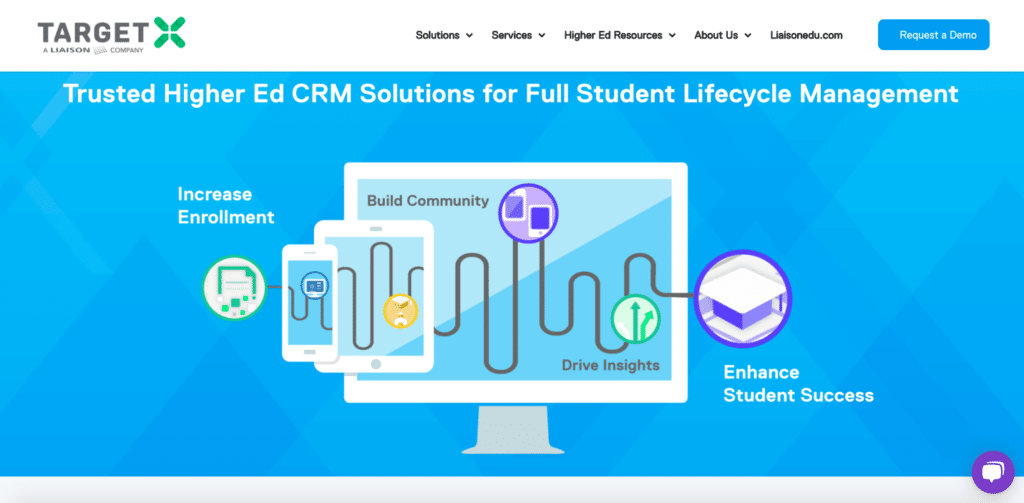
TargetX provides higher education institutions with a comprehensive CRM solution that helps them oversee their entire student lifecycle.
With TargetX, universities can effectively manage all aspects of the student experience from recruitment and admissions through graduation and alumni engagement.
This CRM is reliable if you want to increase your enrollment, help students build community, receive tailored analytics, and enhance the success of your entire institution.
Why We Picked It
- Multiple suites to increase productivity
- Salesforce connection
- Insightful reports
- Intuitive email platform
- Event management
Pricing
TargetX pricing is demo-based.
Pros
- Wide swath of features
- Great customer support
- Sleek automation
Cons
- Applicant and current student resources on different CRMs
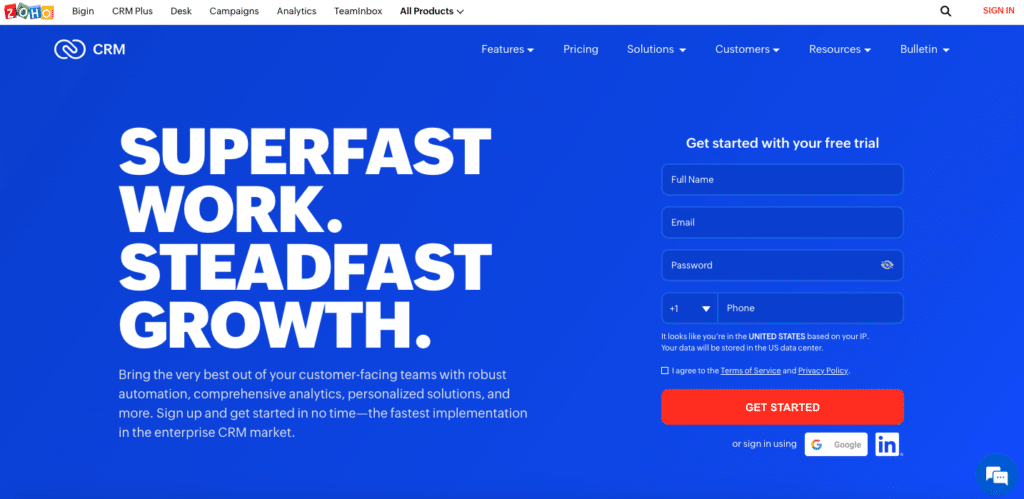
Zoho’s CRM system is widely used by over 200,000 businesses.
We chose them because of their extremely intuitive interface and affordability.
While Zoho doesn’t offer academia-specific resources, its Educational Sector module includes many of the resources available in any CRM for higher education.
Why We Picked It
- Advanced customization
- Department-based layouts to organize student directory
- Layout-based workflow and reports
Pricing
Zoho CRM offers a free trial if you want to test out its services as a college CRM software.
Their plans then start at $14/user/mo for the Standard package, $23/user/mo for the Professional package, $40/user/mo for the Enterprise package, and $52/user/mo for the Ultimate package.
Pros
- Affordable pricing
- Easy to use
- Highly customizable to your college's needs
Cons
- Minimal features for increasing admissions and student engagement
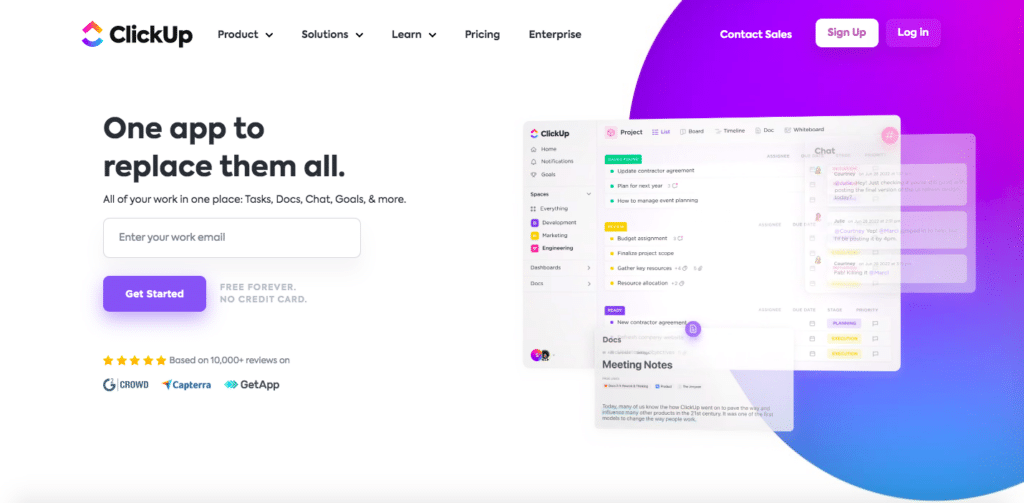
ClickUp makes it incredibly easy to customize and build the perfect CRM for higher education.
This project-management CRM is great for team management and collaboration in all of your goals for your institution.
It doesn’t come jam-packed with admissions and enrollment-based features, but if you need a tool to help you manage your staff and recruitment, it could be a solution for you.
Why We Picked It
- Task organization
- Excellent for collaboration
- Whiteboard and Goals features
- Allows for transparency between school departments
- Generous storage and tasks
Pricing
ClickUp offers a generous free plan with 100MB of storage if you want to test their services.
However, for higher education institutions, their Business ($12/mo) or Business Plus ($19/mo) plans are probably more suitable.
Pros
- Collaboration-based
- Unique project planning features
- 24/7 support
Cons
- Less tailored for higher education than other CRMs
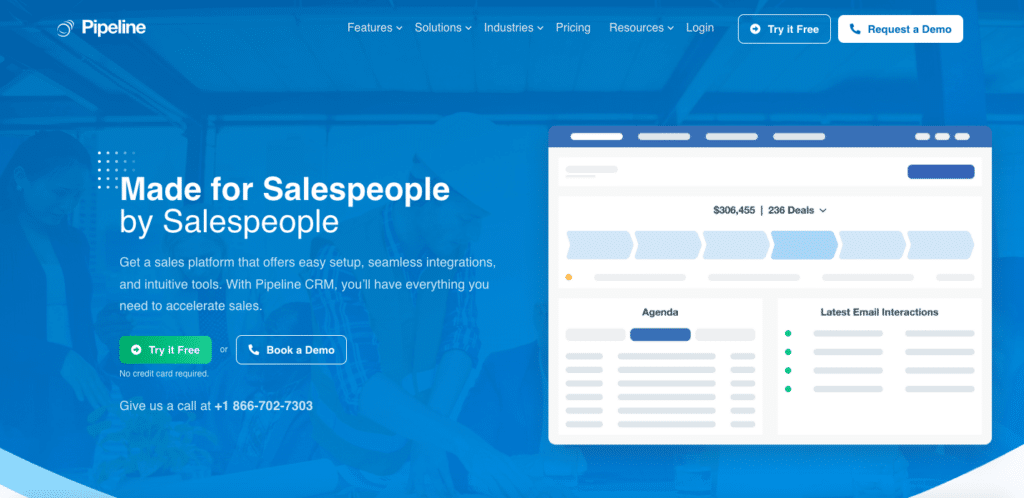
Pipeline CRM is highly customizable and an excellent option for increasing your college’s organization and popularity.
Their pipeline and lead management tools can help you stay on top of your school’s data and admissions.
While they don’t offer CRM services tailored to the higher education industry, you can book a demo to see what they can do to accommodate your institution.
Why We Picked It
- Pipeline management
- Collaboration tools
- Super-easy onboarding
- Customizability
- Reliable customer care
- Current-contact management
- Marketing automation
Pricing
To explore higher education CRM options, book a demo with Pipeline.
Pros
- Super accessible UI
- Wide host of integrations
- Flexibility and modifications
Cons
- App can be glitchy
What is a Higher Education Customer Relationship Management Software?
Higher education customer relationship management (CRM) software allows academic institutions to store and analyze data about potential, current, and past students.
CRM systems optimize the back-end university experience by tracking major touch-points throughout a student’s life cycle, including application to final projects to graduation.
Like all other CRM software, higher education CRM can also help staff to improve cross-department communication and organization.
What Features to Look For in a Higher Education CRM
Ability to Manage Prospective Students
A higher education CRM can help you keep track of who has responded to your outreach, what communications they have received, when follow-ups are due, and more.
All this data will be neatly stored on a good higher education CRM, for you or any other collaborators to access as needed.
Ability to Streamline Admissions
Streamlining admissions with higher education CRM means you’re able to automate the entire admissions process.
This includes tracking applications, collecting documents, and managing application fees- all while providing more transparency and communication with prospective students.
This is especially helpful for universities that have smaller staffs that can’t always manage hundreds of applications at once.
Ability to Manage Invoicing
Invoice management makes it easier for universities and colleges to track payments, follow up on unpaid invoices, analyze ROI, and more.
You can even use higher education CRM to send payment reminders or automated invoices directly to students or families.
Ability to Integrate Marketing Channels
One of higher education CRM’s most important features is the ability to integrate with various marketing channels.
This allows you to use your CRM to track outreach efforts, analyze their effectiveness and ROI, adjust campaigns as needed, manage events, and more.
Marketing is an essential part of increasing admission, so make sure you know what’s working and what’s not!
What are the Benefits of Using a CRM Software?
Engage With Prospects
Engaging with prospective students has never been easier without CRM.
Most higher education CRM software comes with outreach functions across email, text, and chat.
With these functions, you can reach all of your prospective students at once. This makes the process highly streamlined and easier for your team.
Marketing Automation
Strengthen your higher education marketing campaigns with higher education CRM.
With automated marketing tools, you can easily set up and execute email campaigns, schedule events, create segmented lists, and more.
Plus, you’ll be able to track the success of your marketing efforts and make any necessary adjustments on the fly.
Manage Budget and Resources
Student recruitment can be expensive, so higher education CRM helps you manage your resources more effectively.
You’ll have access to reports that show spending trends and a dashboard to quickly view the financial health of the school at all times.
Plus, higher education CRM can also forecast future expenses and help you create a budget plan accordingly.
Student Security
Higher education CRM can also help ensure the security of your student data.
The software will keep all your student information safe and secure, and you’ll be able to access it anytime, anywhere.
Plus, higher education CRM is usually compliant with GDPR, CCPA, and other regulations that protect student privacy.
Conclusion
Strengthening your beloved institution and keeping it on the map has never been easier since higher education CRM.
Make sure you choose software that fits the needs of your school, according to factors like size, mission, enrollment statistics, and more.
Happy hunting!
FAQs about topic
A higher education CRM helps academic institutions manage the life cycles of prospective, current, and past students.
It’s also an excellent tool for resource management.
The best CRM for education is either TargetX or Embark, due to their wide swath of education-specific features.
Higher education CRMs are used to simplify recruitment processes, manage marketing and outreach campaigns, track payments, integrate with various marketing channels, and more.
They’re also useful for tracking applications, collecting documents, and managing application fees- all while providing more transparency and communication with prospective students.
There are three types of CRM software: analytical, collaborative, and operational.
- Increasing institution revenue
- Customer connection
- Marketing optimization
- Streamlining collaboration
- Improved analytics

